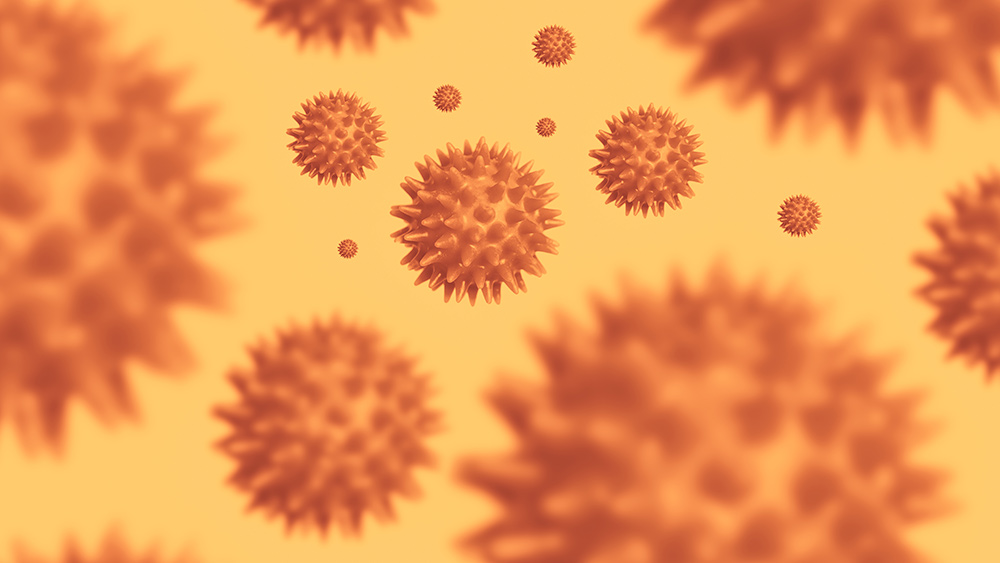Study finds “supertasters” may have some innate immunity against the coronavirus
08/17/2021 / By Ramon Tomey

One of the many mysteries of the Wuhan coronavirus (COVID-19) that baffle researchers is why it affects some people more severely than others. But a recent study found that supertasters – people who experience a greater-than-average intensity of bitter taste – are less likely to develop severe COVID-19 than normal tasters and non-tasters. This may be due to them having stronger immune systems. Previous studies have found that supertasters have more robust immune responses to microbial infections than people with normal taste buds.
A gene called T2R38 is said to be responsible for the enhanced sensitivity of supertasters to the bitter taste. People who inherit this gene from both parents tend to have more hair-like projections called cilia in their noses and sinuses. These cilia help eliminate inhaled particles and pathogens from the body. People who have two copies of the T2R38 gene also produce more mucus and nitric oxide, which help fight off pathogens, than those with fewer copies.
In their study, which appeared in JAMA Network Open, researchers at Baton Rouge General Medical Center (BRGMC) and Pennington Biomedical Research Center looked at how being a supertaster influenced clinical outcomes for COVID-19 patients. Lead study author and otolaryngologist Dr. Henry Barham became interested in this after performing numerous operations at BRGMC that increased his exposure to the COVID-19 virus. Some of Barham’s colleagues have contracted the disease despite wearing protective gear. Barham, a supertaster himself, has not.
To explore a possible link between being a supertaster and COVID-19 immunity, Barham and his team recruited 1,935 study participants with occupational exposure to the COVID-19 virus. Using taste strip tests, they classified the participants into three groups: the supertasters, the normal tasters and the non-tasters. Normal tasters comprised those with only one copy of the T2R38 gene, while those who did not inherit the T2R38 gene from their parents and perceive little to no bitter taste fell under the non-tasters category.
For some survivors, COVID-19 left a bad taste in their mouths
Barham and his team reported that, among the 1,935 participants they recruited, 508 were supertasters, 917 were normal tasters and 510 were non-tasters. A total of 266 participants contracted COVID-19, 55 of which ended up in the hospital. Only 15 of the 266 who tested positive were supertasters, while 47 of the 55 who were hospitalized were non-tasters.
These findings suggest that non-tasters are more likely to be infected with COVID-19 than normal tasters and supertasters. Non-tasters also have a higher risk of hospitalization after infection. In addition, the researchers noted that non-tasters remained symptomatic for a longer duration than either normal tasters or supertasters.
Supertasters who tested positive for COVID-19 experienced symptoms for an average of only five days. Meanwhile, normal tasters showed symptoms for an average of 13.5 days, while non-tasters experienced symptoms for an average of 23.7 days.
Overall, the study showed that having two copies of the T2R38 gene and, consequently, more bitter taste receptors than the average person, could help predict COVID-19 risk and disease severity 94 percent of the time. Despite this, Barham warned that supertasters still need to be careful as their enhanced sensitivity to taste and stronger immune responses do not guarantee that they will be completely immune to the COVID-19 virus.
“Even supertasters, as they age, have the potential to get sick – especially if exposed to a high viral load,” he explained. (Related: Yes, it’s REAL: Coronavirus patients are losing their sense of smell and taste – and aren’t getting them back.)
Barham and his team’s study shows a possible link between sense of taste and COVID-19 susceptibility. Many survivors have reported finding the taste and smell of foods weird, which suggests that COVID-19 can distort a person’s sense of taste and smell — a condition called parosmia.
Twenty-eight-year-old Marcel Kuttab, a COVID-19 survivor, shared her story about dealing with parosmia. Months after recovering from COVID-19, Kuttab said that she found many foods had weird tastes and smells. For instance, onions, garlic and meat all tasted putrid to her, while coffee smelled like gasoline. (Related: Senses of smell and taste of coronavirus survivors continues to be distorted months after they recover.)
“You can spend a lot of money in grocery stores and [end] up not using any of it,” she said in an interview.
Fortunately, things have improved for Kuttab since then. Smell training, which involves repetitive sniffing of potent scents, has helped with her parosmia. Kuttab said that sniffing her collection of essential oils has helped with her recovery. Now, almost all of them smell normal, which she finds encouraging.
Visit Pandemic.news to read more articles about the connection between COVID-19 and the sense of taste.
Sources include:
Submit a correction >>
Tagged Under:
bitter taste, coronavirus infection, covid-19 pandemic, discoveries, health science, immune system, natural immunity, parosmia, research, sense of taste, supertasters, Wuhan coronavirus
This article may contain statements that reflect the opinion of the author
RECENT NEWS & ARTICLES
Infections.News is a fact-based public education website published by Infections News Features, LLC.
All content copyright © 2018 by Infections News Features, LLC.
Contact Us with Tips or Corrections
All trademarks, registered trademarks and servicemarks mentioned on this site are the property of their respective owners.





















